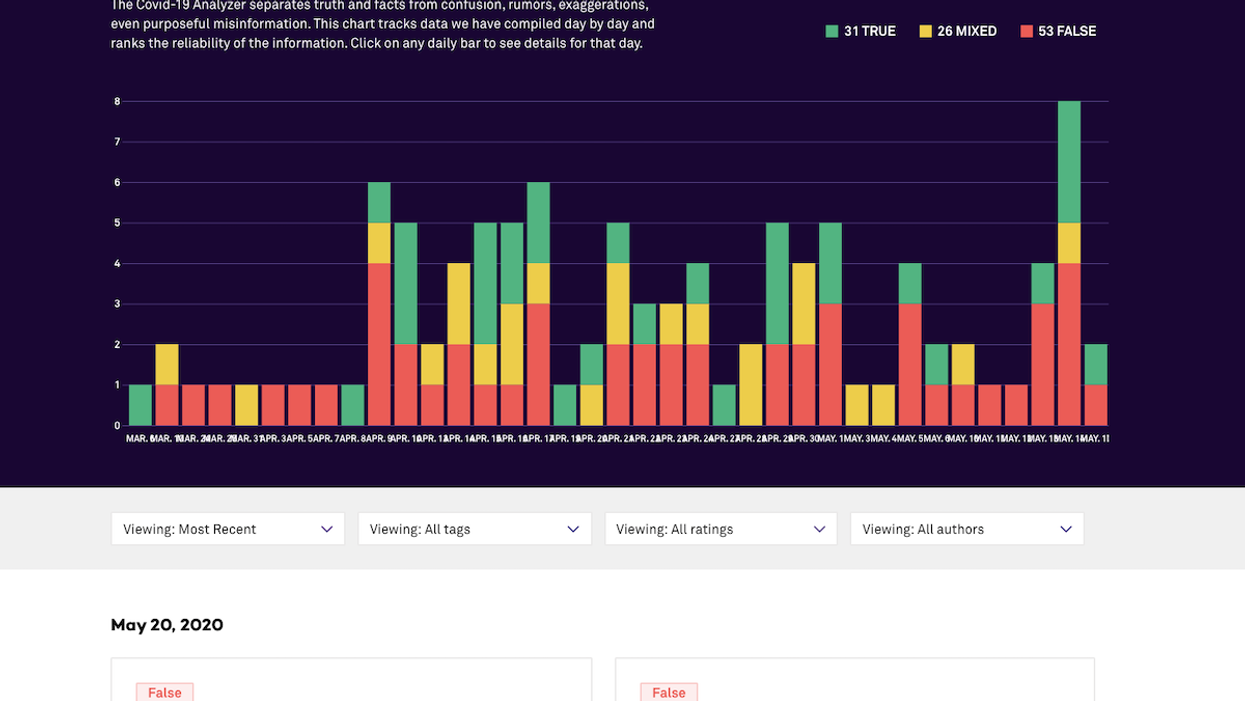The Fulcrum has partnered with the Medill School of Journalism, Media, Integrated Marketing Communications to co-publish students' fact-checks on public statements about the coronavirus pandemic and its impact on civic engagement. The Fulcrum will also publish related stories, podcasts and videos in partnership with the journalism school, a part of Northwestern University.
The Covid-19 Analyzer includes an interactive database that allows users to research stories, public statements and social media reports for accuracy, listing them as true, mixed or false, accompanied by an explanation and links to further information.
The 13-member Politics, Policy and Foreign Affairs Reporting Project team is also producing an updated national scorecard on voting practices called the 2020 Election Tracker, with an interactive map of the 50 states' regulations for in-person and mail-in balloting, as well as candidate filing and voting deadlines.




















Trump & Hegseth gave Mark Kelly a huge 2028 gift